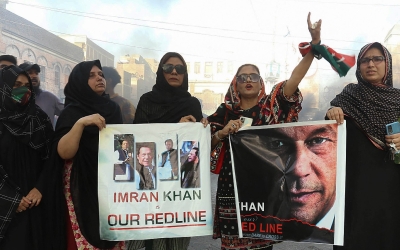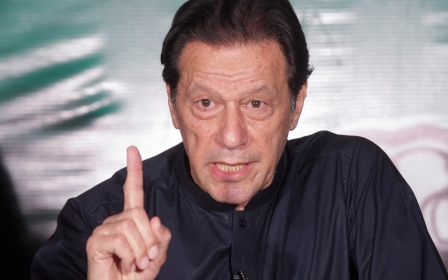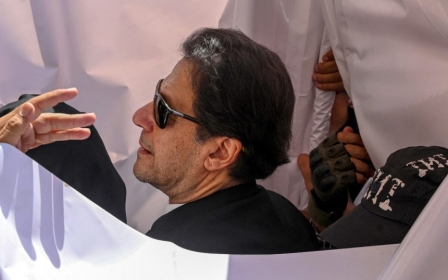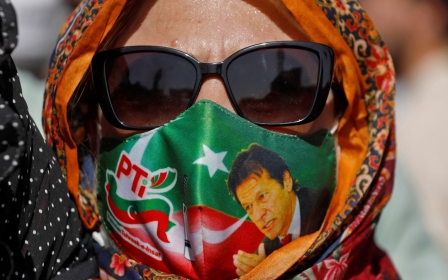Pakistan: What does the future hold for Imran Khan?
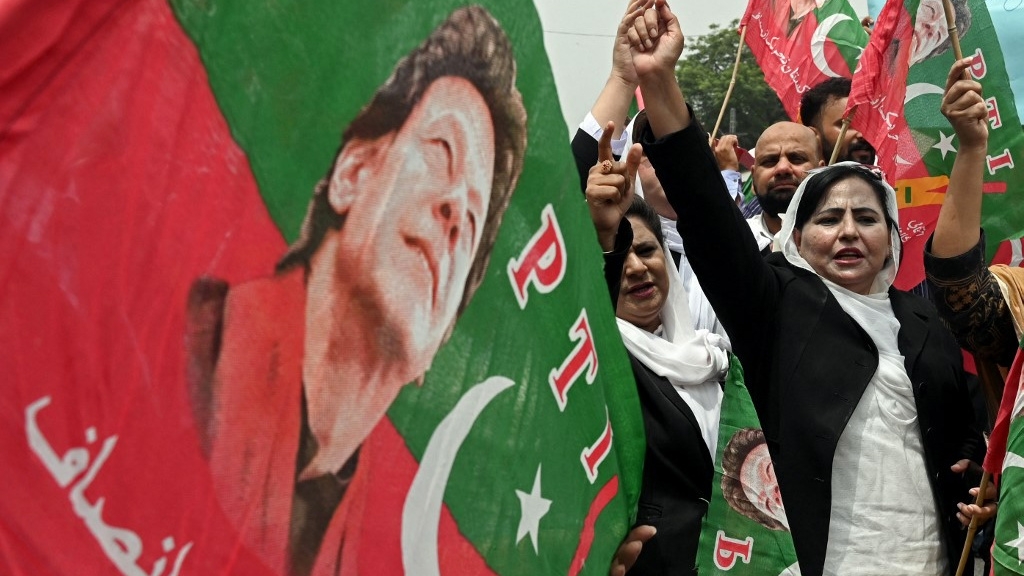
In Pakistani politics, the more things appear to be changing, the more they stay the same.
The political contestation between former Prime Minister Imran Khan and the country’s military establishment has essentially ended with the imprisonment of Khan. But the reach of Khan’s message has only grown; it now transcends his traditional support base of the urban middle class and youth.
Attempts by forces arrayed against Khan to develop a counter-narrative have failed, even with the country’s media infrastructure under their control. Still, to survive politically, Khan must persevere during his incarceration.
In this context, it is important to recall the trajectory of Khan’s relationship with the Pakistani military. A decade ago, relations were cordial, with reports emerging that the country’s spy chief was even pushing other politicians to support him.
They were at odds over certain issues, with Khan opposing the military establishment’s partnership with the US in its war on terror and criticising the latter’s drone strikes in tribal areas of Pakistan. But as Khan became the principal face of political opposition in the country, ultimately being elected to the role of prime minister in 2018, the government and military developed a symbiotic relationship - one that was reinforced by the personal chemistry and trust between Khan and the former army chief, General Qamar Javed Bajwa.
New MEE newsletter: Jerusalem Dispatch
Sign up to get the latest insights and analysis on Israel-Palestine, alongside Turkey Unpacked and other MEE newsletters
This dynamic began shifting, however, as old tensions reemerged ahead of the US withdrawal from Afghanistan. Khan came out against any kind of renewed cooperation with Washington, while the Pakistani military held a different view.
As Khan doubled down on his anti-American discourse in the aftermath of the Taliban takeover in Afghanistan, it became increasingly difficult for Pakistan’s military to work with his populist rhetoric. Their political partnership ended, and opposition forces that had previously been constrained to act against Khan were given a free hand, leading to his removal from power.
Rejecting the new status quo
While these developments were not surprising, Khan’s unrelenting defiance was, as he refused to accept the new military-backed political status quo. Khan’s detractors expected him not to fight back, hoping that like other past leaders, he would go into exile until the situation was more favourable to him.
This is where Khan showed incredible character, something that has historically been lacking within Pakistan’s political class. Instead of accepting the new normal, he launched a political campaign to mobilise his support base around the call for a new election.
The writing was on the wall: If allowed, Khan would be able to upend the fundamental structure of Pakistani politics
As the country’s economy deteriorated further, the new government became increasingly unpopular, bolstering Khan’s cause. His party won crucial by-elections in Punjab last year, marking a serious setback for the national government and military. It became clear that in the event of a general election, Khan had the political capital to return to power - even without the goodwill of the military establishment.
Khan was openly threatening the military’s hegemony over Pakistani politics. His arrest this past May sparked violent protests, which targeted military facilities - enough justification for the army to project him and his movement as a national security threat.
The scale of “Khan problem” was apparent from the fact that the military had to take disciplinary action against more than a dozen army officials, including three senior officers who were accused of failing to protect army installations.
The writing was on the wall: if allowed, Khan would be able to upend the fundamental structure of Pakistani politics, while also reversing the power equation between the military and civilians.
Political and cultural memory
The state’s response was ruthless. In recent months, Khan’s party has become virtually defunct, as scores of party leaders have left to pursue more viable political options. Many of those still loyal to Khan have been arrested or gone into hiding. Khan remains banned on Pakistani television.
It would not be wrong to suggest that a comprehensive attempt has been made to remove him from the country’s political and cultural memory. A recent commemorative video published by the Pakistan Cricket Board became a laughingstock due to the omission of Khan, the country’s only World-Cup-winning captain.
The erasure campaign came to fruition this month as Khan was sentenced to three years in prison, all but eliminating any possibility of his return to active politics in the near future. It appears that the country’s military establishment expects Khan’s political resolve to eventually break down in jail.
If, like former Prime Minister Nawaz Sharif, Khan reaches out to the military to negotiate terms of exile from Pakistan, this would end his political career for good, eliminating the most formidable challenge the army has faced in some time.
But if Khan continues his defiance from jail, his political stature will only grow. His incarceration might have silenced his routine outbursts against the government, but he has grown more popular than ever, as evidenced by his party’s recent victory in local elections in Peshawar. If this state of affairs continues, the Pakistani establishment won’t have any more arrows in its quiver to bring Khan down.
At the federal level, a new caretaker government has been installed to take the country to the next election, which should be held this autumn - but some observers fear that timeline will be delayed amid the current political crisis. Such a development would further undermine Pakistan’s already fragile relationship with democracy.
The views expressed in this article belong to the author and do not necessarily reflect the editorial policy of Middle East Eye.
Middle East Eye delivers independent and unrivalled coverage and analysis of the Middle East, North Africa and beyond. To learn more about republishing this content and the associated fees, please fill out this form. More about MEE can be found here.



